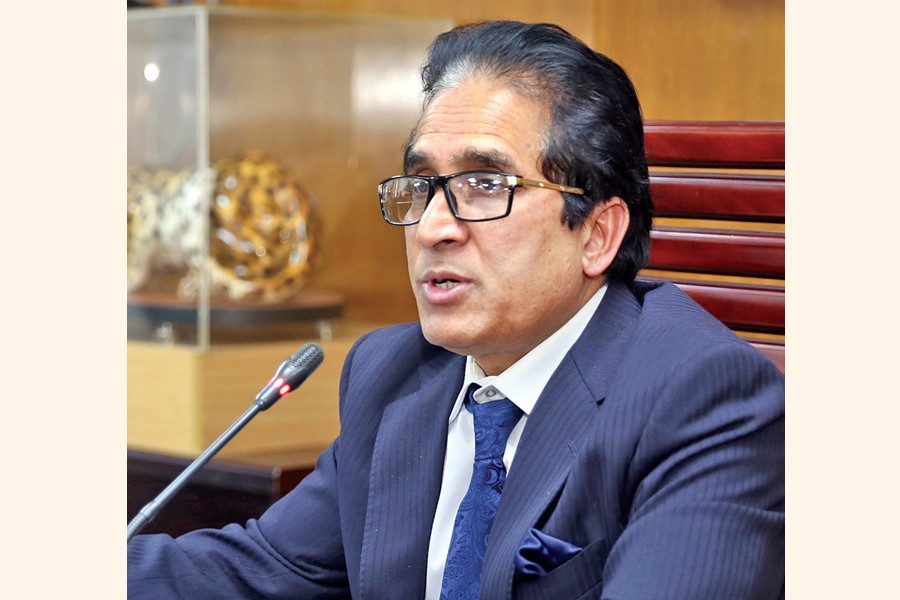The country's private sector is paying meagre salaries to their most of the employees, making their life miserable, National Board of Revenue (NBR) Chairman Md Mosharraf Hossain Bhuiyan said on Monday.
"But they pay extremely high salaries to very few top officials and foreign employees," he said while speaking at a post-budget programme organised by Institute of Cost and Management Accountants of Bangladesh (ICMAB).
Dhaka Branch Council of ICMAB organised the post- budget roundtable discussion titled "Tax, Tariff and Trade Policies for Inclusive Economic Growth" on its campus in the city.
Responding to a demand for reducing the government's administrative expenditure by a private sector businessman, the NBR chairman said cutting government expenses is not possible.
"The country's people are happy with existing salaries of the government employees."
The government employees in the country are comparatively getting less salary than that of the employees in most of the countries in the region, he said.
"The private sector used to pay lucrative compensation than those of the public sector which used to pay to its employees. But now they pay scanty salaries."
He said the country's poverty should have been alleviated at a much higher pace as the government provides many investment incentives to the country's businesses.
"No country in the world provides so much investment incentives to its businessmen the government of Bangladesh gives to our businessmen."
Ready-made garments don't need to pay any duty on import of raw materials, he added.
"We have also facilitated the bond system, incentives for export and only 10-12 per cent income tax for RMG."
Dr Jamaluddin Ahmed, one of the Directors on the Board of Bangladesh Bank, said the country should improve the capital market, bond market and other long-term financing sources for providing capital to industry.
Now the country has more than 40 million unemployed people. "We need extensive investment in industries to create employments for these people and for that we need long-term financing," he said.
The country's banking sector has been languishing for not having long-term financing sources in place, he observed.
President of Bangladesh Textile Mills Association Mohammad Khokon said the same authority should not formulate tax policy and collect tax simultaneously.
"If the same authority formulates policy and collects tax, they don't try to improve the situation rather they formulate policy what they can do," he said.
Group Managing Director of Anwar Group of Industries Manwar Hossain said black money should not be allowed for investment in land.
He also criticised the proposed policy for allowing black money investment in export processing zones.
"Export processing zones are most privileged places in the country. We, the honest businessmen, are not allowed to invest in EZ, but black money holders can do. This is very unfair."
He also said black money should be allowed to keep in the bank for a long time in the form of deposit which will meet the demand for liquidity in the country's industry as well.
Professor of Finance at Dhaka University Dr Mahmood Osman Imam, Vice President of ICMAB Jamal Ahmed Choudhury, president and secretary of ICMAB Md. Abdus Satter Sarkar and Md. Abdur Rahman Khan, among others, were also present.


